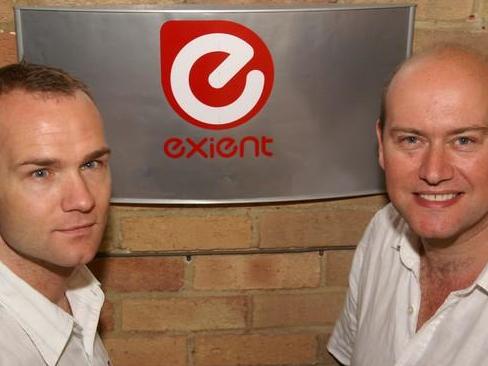Interview: the future of handheld gaming
Exient directors share their thoughts on iPhone gaming and the future of handhelds

TechRadar recently caught up with the directors of Oxford-based Exient, one of the UK's fastest growing handheld and mobile games developers, co-founded in Jan 2001 by Charles Chapman (Technical Director) and Dave Hawkins (Managing Director), who shared their thoughts on the importance of iPhone gaming and the future of handheld consoles.
The team at Exient, currently busying away putting the finishing touches to EA's SKATE IT on DS, has grown considerably over the last seven years – recently making moves into the home console space - and is now an authorised developer for Nintendo DS, Sony PSP, PS2 as well as Xbox 360, PS3 and Wii.
The company claims its Oxford base allows them to tailor its burgeoning team, marrying up a good "mix of seasoned gaming professionals" with "highly intelligent technical resources" which seems to have proven to be a winning formula.
Exient has picked up a trophy room full of awards in its short life, for games such as Total Soccer, FIFA GBA, FIFA NDS, not to mention being awarded TIGA's coveted Best Handheld Games Development Studio award in 2005 and being listed in last year's Develop 100 – the definitive list of "The World's Most Successful Game Studios".
TechRadar: What are the key problems with developing for mobile? Do you think that the iPhone is going to change the scene as much as some predict?
Dave Hawkins: The main problems with the mobile format are things like user interfaces and the huge number of SKUs that need to be produced to cover a decent proportion of the overall market.
Charles Chapman: Another issue is the audience – we have to address a casual audience and as we've seen, versions of console titles aren't as popular as products specifically targeted at the mobile platform and casual players.
Sign up for breaking news, reviews, opinion, top tech deals, and more.
The iPhone goes a long way towards addressing some of these problems. It has the power to run decently complex games and a much nicer control surface than what we've had to use previously.
What's more interesting is that despite the iPhone essentially being a PDA with a music and telecoms focus, it has a cool and desirability that no handheld or PDA has previously had.
Developers also love it so despite it appearing to be a familiar proposition, it's actually a fresh start for the mobile platform as a whole.
Support is already huge in the developer community and it's carving its own market, largely by its own rules. I think iPhone is going to merge the handheld and mobile space in a way we've never seen before.
-
TechRadar: Moving on to the old DS vs. PSP debate-- what are the highs and lows of developing for each platform?
Charles Chapman: The highs for the DS are quite clear. It came with new features and functionality, such as the two displays and the touchscreen, and DS owners crave new experiences and new ways to play existing games, across both the gamer and casual demographics.
The other great thing about DS is that the development risk is low enough for publishers to take chances on new ways of gaming and new product types we'd never previously expected to be successful.
The lows are that with the lower budgets, the market is flooded with poorer quality offerings that dilute the overall quality of the DS catalogue.
It's also a bit of a shame that the hardware isn't a bit more powerful – something closer to the Gamecube, rather than N64, would be nice!
Dave Hawkins: The PSP offers you current-gen capability in the palm of your hand and along with that fantastic screen, is a marvellous bit of technology.
It's got great multimedia functionality as well, what with its photo browsing and MP4 video functionality and its connectivity, especially as it becomes more unified with PS3.
